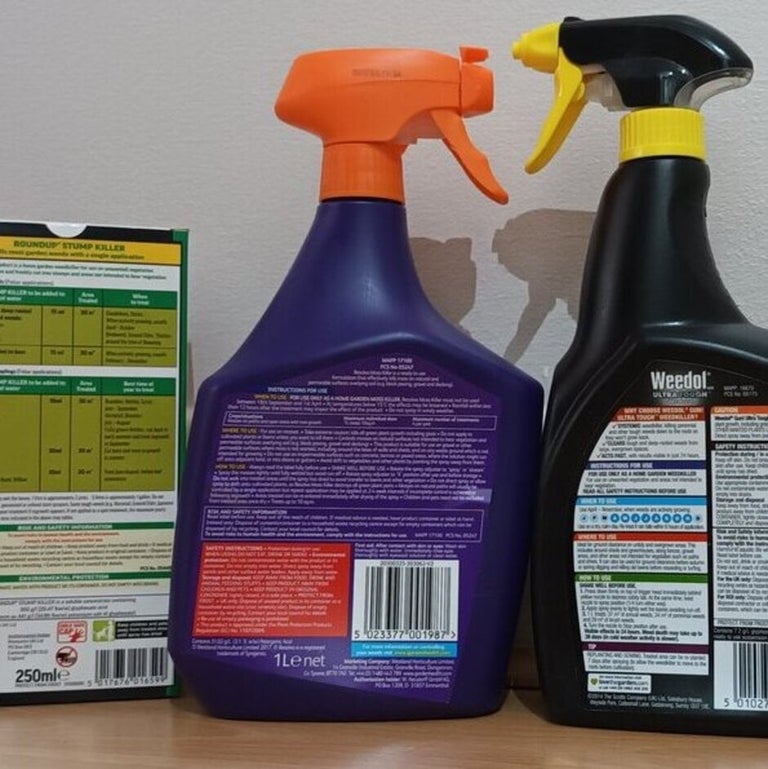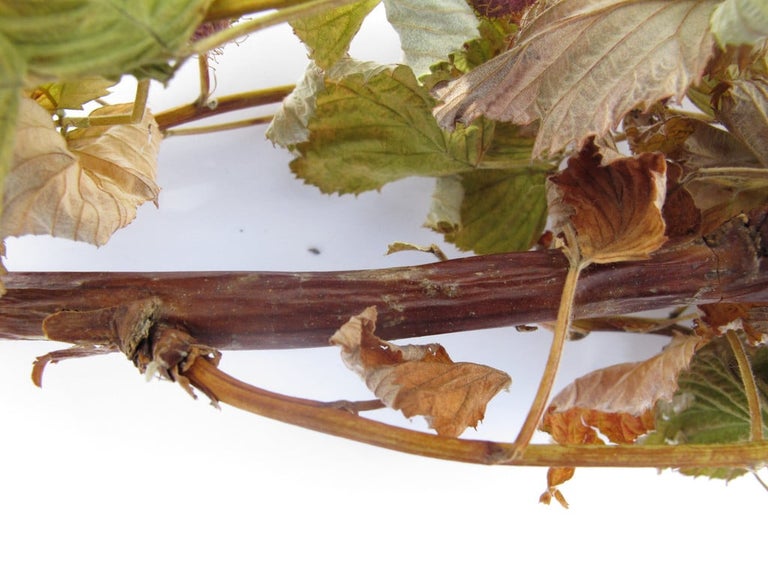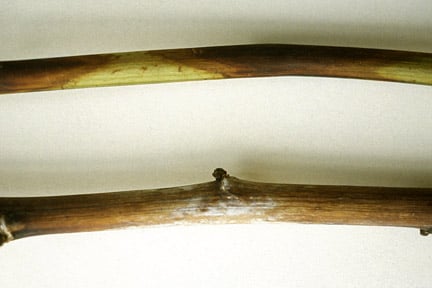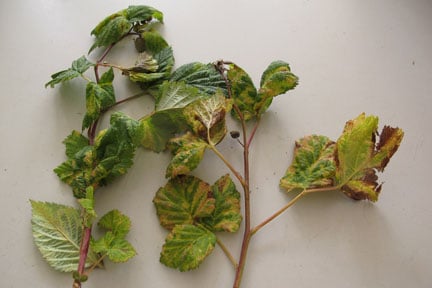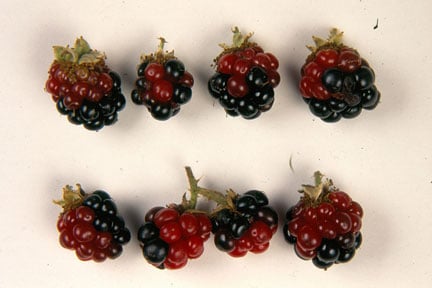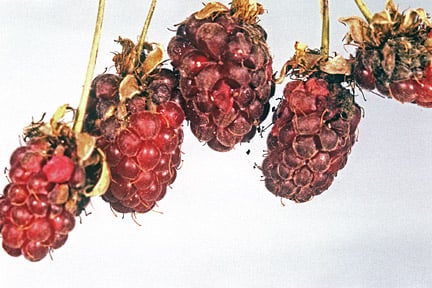
Quick facts
Common name - Raspberry beetle
Scientific name - Byturus tomentosus
Plants affected - Raspberry, blackberry, tayberry, loganberry
Main symptoms - Fruits have dried up patches; may contain beetle grubs
Most active - June to August
What is raspberry beetle?
It is the larvae of raspberry beetle that affects fruit. The larva feeds at the stalk end of the fruits. It is mainly a problem on summer-fruiting raspberries. Early fruits on autumn raspberries may be damaged, but those ripening after late August are less likely to be affected.
Raspberry beetle adults are small 4 mm long pale brown beetles in the family Byturidae. There are only two species of beetle in this family found in Britain. The other species B. ochraceus looks similar to the raspberry beetle but is associated with Geum urbanum (wood avens) and does not affect garden plants. UK beetles information on Byturidae.
Symptoms
- Damaged ripe berries have greyish-brown dried up patches at the stalk end
- A brownish-white grub, up to 8 mm (about 1/4 in) long, may be found inside the fruits
Management
- Where possible tolerate some beetle damage, often only a small proportion of the crop is affected. Later ripening berries tend to be less affected
- Encourage predators and other natural enemies in the garden such as birds, hedgehogs and ground beetles
- A host plant odour (karimone) water trap is available from Agralan, Harrod Horticultural and some other suppliers. This will trap both male and female beetles which may help reduce population levels
Biology
- The 4 mm (about 1/8 in) long adult beetles are pale brown and they lay eggs on the flowers in May to mid-July
- The young larvae feed at the stalk end of the developing fruit, but later move inside to feed on the central plug
- In late summer, the fully-fed larvae move into the soil where they overwinter as pupae
